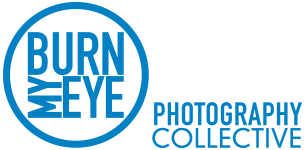Who are You?
My name is Christopher de Bethune, and I'm waving to you from cold Brussels.
What was the trigger, or inspiration, that led to your taking up photography?
In my teenage years, I guess, taking tons of pictures at hardcore and punk shows, friends playing in bands, the skate scene...all of that was the trigger, when I felt the need to document everything about that golden period. I did lose everything while moving a few years later; one crate disappeared, probably stolen, and it was the one with all the negatives and my Canon AE-1. I didn’t immediately realize the impact of the loss; I was like, “Yeah, it’s like that...I remember everything there anyway (taps head).” Now, of course, I would pay gold ingots to get them back.
After that I kind of stopped taking pictures, because I was entering the fourth stage of manhood as a young adult, a.k.a finding work. I found a job, and it took all my time, patience and concentration. It was only around nine or ten years ago that I got back into it. I was still rampant during all those years, of course, but then I threw myself into it, and now it’s like 110%.
What do you hope to communicate or describe with your work?
A difficult question!
I really don’t know if I hope to “communicate” anything in particular with my images; maybe the slow process of time passing, archiving all the small adventures, those tiny moments we can find on every corner of any street; any car or train ride can result in an image that I like. It’s a very avaricious thing for me, because I’m making images firstly for myself; it's so satisfying when I scan a negative and the picture is exactly like I pictured it in my head when I clicked the release button. But of course I’m utterly thrilled when someone gives me positive feedback or a nice word about an image that I really like.
Has your relationship with photography changed over time, and if so how?
Yes it has...not changed so much as evolved over the years. While I’m still in love with a more classic approach, like landscaping or sharp images, the revelations of the Provoke manifesto and the “are-bure-boke” (rough-blurry-out of focus) movement completely changed my vision and approach.
What I was looking for became a bit more artistic, like working in low-light conditions a lot, playing with the slow speeds of my camera, the high-ISO films, trying to produce ghostly shadow images, and I tend to run as far as possible from the obvious subject. I like it when these images raise questions like “What the hell is that?” or “How did you do it?”
Please select a few of your photos and talk about how they came to be and how they reflect your working methods.
Pic 1:
I used two full 36-exposure rolls of film to finally catch that damn lightning.
This one is on Bulb mode, which I use a lot now, for exposures of about three seconds, with no tripod.
It was a bit of a challenge to “feel” when to take it, as the only hint you got is when the sky got a bit lighter about half a second before the lightning struck. I got a sharper one on the second roll, but then again, I far prefer this one.
Pic 2:
Portrait of Rozafa at night, from last week. I made this with the tiny Olympus XA2, one of my favorite cameras ever, always in my pocket. The little camera is quite slow, with a maximum aperture of f3.5, but with a steady hand it can produce material I really enjoy, a bit like the imagery you find in your dreams.
Pic 3:
This landscape was taken from the window of a train in motion. I know, people are gonna yell, “C’mon, it’s full of dirt!”
Yes, it is. I do love not cleaning the negatives before scanning them and sometime even not cleaning the glass of the scanner, to add small imperfections to the picture. It’s also one of the main reasons I’m working only with film and not digital...those imperfections.
Where do you see you and your work in 10 years?
Hmm, either in a guestroom in Kathmandu planning the rest of the week on a small notepad or working in a photobook shop in my hometown, finishing my 50th zine. But either way it will be with a chai masala.
What keeps you making images?
It’s an everyday need, a catharsis in a way, as it makes me stop thinking about everyday small problems; it’s also a great remedy for my anxiety.
What photobook(s) changed your life?
Deformer by Ed Templeton, and of course the Provoke magazines; those changed everything.

